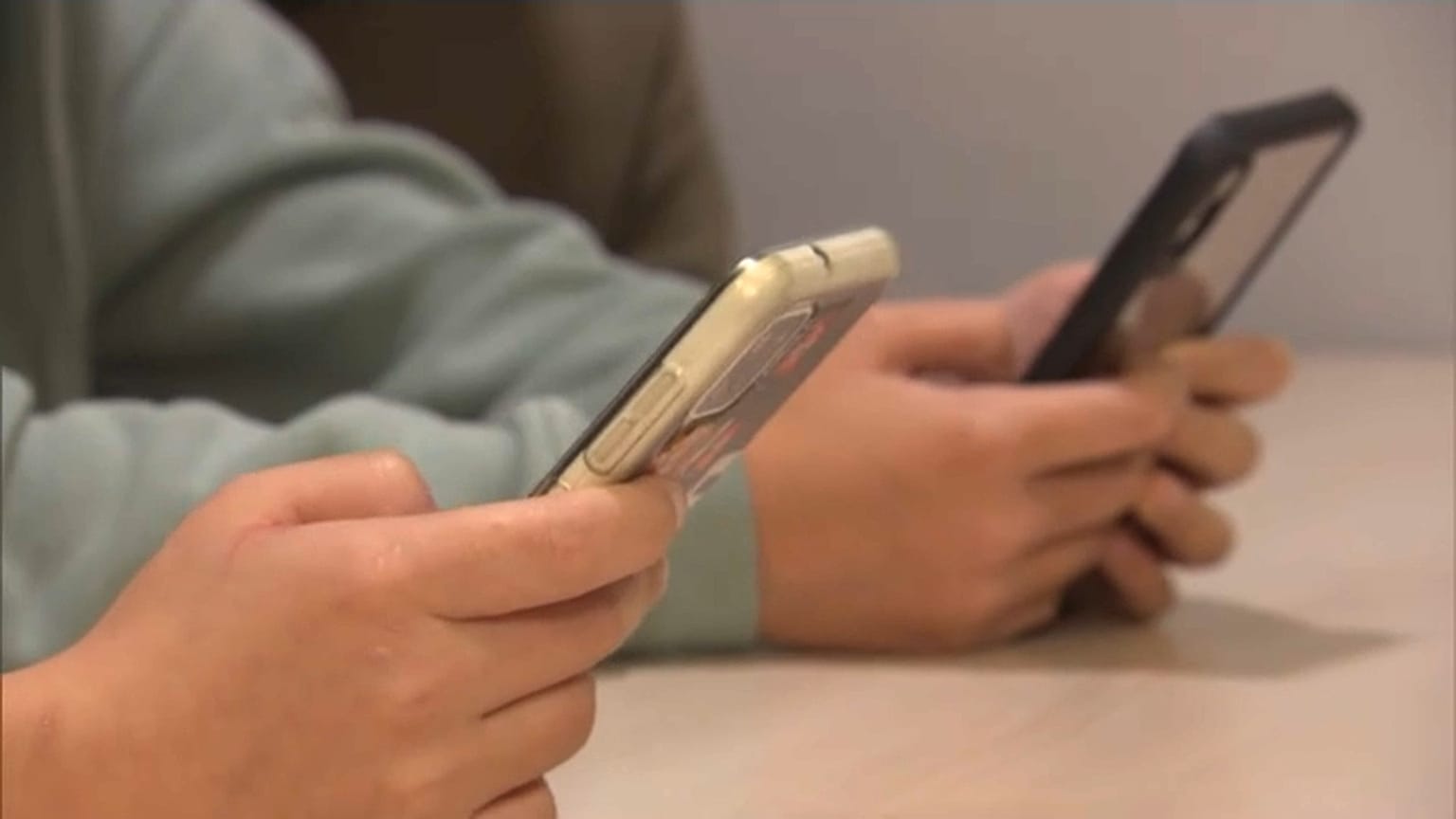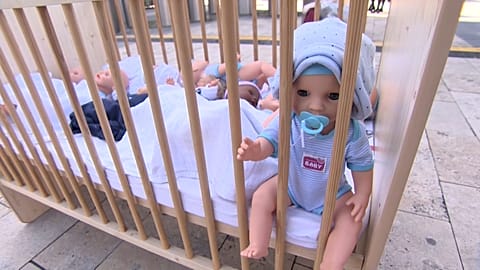Thousands protested a Budapest headmaster's dismissal after he refused to implement a smartphone ban. Meanwhile, other European countries are also implementing a ban.
Thousands of Hungarians gathered in Budapest on Monday evening to protest against the dismissal of the head of a well-known high school in the capital.
 ADVERTISEMENT
ADVERTISEMENT
 ADVERTISEMENT
ADVERTISEMENT
Csaba Mészáros, the headmaster of Madách Imre High School, was forced to resign after refusing to implement the government's school smartphone ban.
The president of the teachers' union, Tamás Totyik, criticised the decree as outdated.
"We have the feeling that the legislation was drafted by people who were last in school when they graduated and are not aware of how an educational institution works," he said.
A Hungarian student told Euronews that mobile phones should be regulated but should not be taken away from pupils entirely.
"Previously, for example, at the beginning of the lesson, the teacher asked us to put our phones on the table, either on the corner of our own table or on the teacher's table, and we did it, and the lesson worked perfectly well," she said.
"So I think that would have been a much better solution to the problem".
Protesters insisted the director was dismissed for political rather than professional reasons, as the legislation in question had not even entered into force at the time of his dismissal, and the law allows for exceptions.
The government wanted to set an example: follow our rules, or you will be punished, they said.
Who else banned phones from schools?
Hungary is not the first European country to prohibit smartphones in classrooms. In the Netherlands, primary school pupils are no longer allowed to bring phones into the classroom starting this week.
The ban had already been enacted in Dutch secondary school classrooms in January.
However, the national agreement between the schools and government does allow for some wiggle room.
Schools are free to decide how to implement the phone ban. If a mobile phone is considered necessary for the lesson content, for example, in a lesson on media literacy, the school can grant an exception.
The school will also make exceptions for students dependent on it for medical reasons or a disability.
In Denmark, Prime Minister Mette Frederiksen advocates limiting the use of smartphones in schools.
Several schools in Denmark are in favour of banning phones during lessons. They hope this will improve mental health and student relations. At Esbjerg High School, students are required to put their phones in a "phone safe".
However, not all students are convinced that the strategy will have a positive impact.
"I don’t know if it will be quieter during class, because people can still use their computers. You can log on to Snapchat on your computer and chat with people there," one student said.
In France, 200 middle schools will experiment with a ban on smartphones, asking students store them in their lockers.
Students will be able to access their phones during recess.
Laptop-free junior high schools could be extended to all schools by January 2025.
'Mobile phones in the school bag'
In Greece, the academic school year kicks off on September 11. The Greek Prime Minister Kyriakos Mitsotakis announced a ban on phones in schools, and students will be required to keep their phones inside their bags during lesson hours.
The prime minister said phones negatively impact the learning process and can result in distraction.
He said this year’s slogan is "Mobile phones in the school bag," and this can "only affect the learning process positively".
Some 373 schools across French-speaking Wallonia and the capital, Brussels, have cracked down on smartphones.
Students are warned that if their phones are confiscated, their parents will have to come and collect them.
A student at Athénée Royal de l'Air Pur in Seraing near Liege said, "you're there to learn, not to look at your phone. I think it's a good idea to ban mobile phones".
The ban was reinforced last year when a video of a teacher reprimanding a student was filmed and posted online without the student's knowledge. The head of studies at the Athénée explained that the incident "had an impact on the teacher's state of mind and did some damage."
Italy's Education Minister Giuseppe Valditara announced a mobile phone ban in all classrooms last month. Smartphones will be banned from primary and secondary schools in the Mediterranean country.
More and more schools in Croatia are implementing a ban as well.
Schools in Split, Zagreb, Osijek and Rijeka have cracked down on mobile phone use during lesson time and breaks between classes.
Pupils are allowed to keep their phones on them, but using the device is prohibited.
Those with diabetes who need their mobile phones to measure their blood sugar levels are exempt from the ban.
According to a recent Institute for Social Research survey, teachers from all Croatian regions generally support the ban, while student responses remain divided.

















